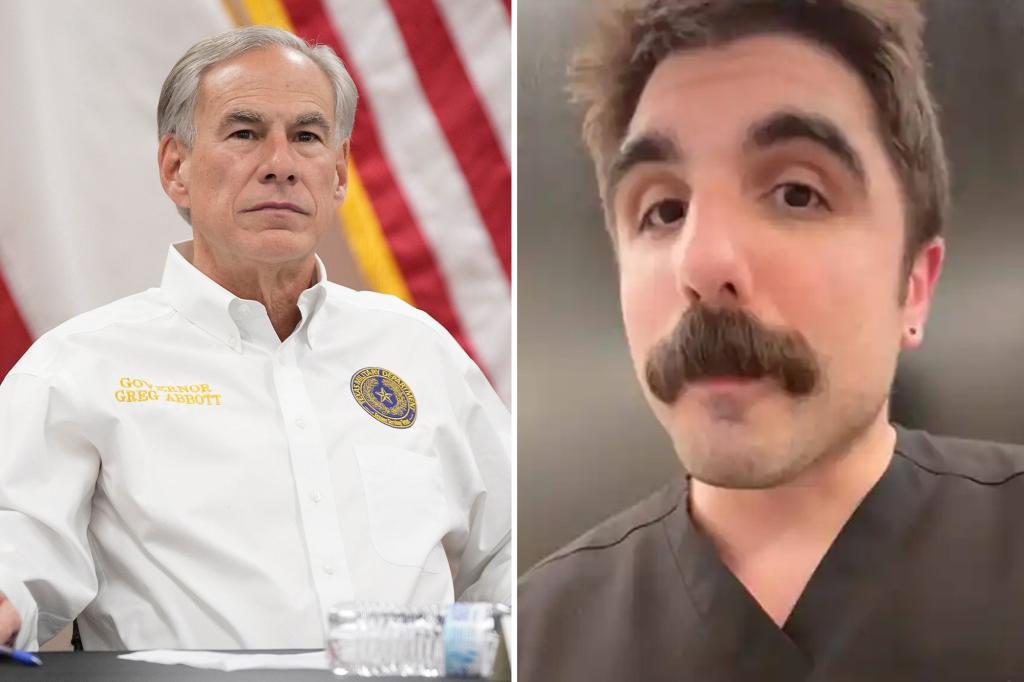In recent developments, Texas Governor Greg Abbott has issued a warning to Texas Children’s Hospital due to a viral TikTok posted by Dr. Tony Pastor, a cardiologist at the facility. In his video, which amassed over a million views before being removed, Dr. Pastor advised patients that they are not obligated to respond to a newly mandated citizenship question that Abbott had introduced earlier this month through an executive order. This order requires hospitals accepting Medicaid or Children’s Health Insurance Plans to ask patients about their U.S. citizenship status during intake. The regulation, which went into effect on November 1, emphasizes the state’s focus on gathering data regarding the spending on undocumented patients.
The nature of Dr. Pastor’s TikTok underscored the belief held by him and others at the hospital that patients can decline to answer the citizenship question without facing repercussions. In response to the outcry elicited by Pastor’s advice, Governor Abbott took to social media to assert that such comments could jeopardize the hospital’s funding, specifically calling out Texas Children’s Hospital and Baylor College of Medicine. His tweet warned of “consequences for failing to follow the law in the Order,” which could financially impact these institutions that provide critical services to children in need.
In the wake of Governor Abbott’s threats, Dr. Pastor defended his comments, highlighting the importance of freedom of speech in his response. He mentioned the law’s intent to gather data on the financial implications of care for undocumented patients but expressed concern over the broader implications such inquiries may have on the healthcare received by individuals, regardless of their immigration status. His sentiments reflect ongoing tensions between healthcare provision and policy directives aimed at addressing immigration-related issues within Texas.
Amidst the fallout, Texas Children’s Hospital released a statement reaffirming its commitment to abide by Abbott’s executive order. The hospital indicated that it has taken steps to ensure compliance with the law and emphasized that Dr. Pastor’s views do not represent the institution’s official position. The spokesperson for the hospital articulated their continued focus on patient care while complying with legal mandates, indicating a divide between staff opinions and institutional policy.
While Texas Children’s Hospital aligns itself with government directives, advocacy groups and other medical organizations across the state have echoed Dr. Pastor’s guidance, asserting that patients can refuse to disclose their citizenship status without it affecting their access to care. Flyers from local health districts reinforced this message, underscoring the right of all individuals to receive necessary medical attention regardless of citizenship or immigration status. Organizations like the American Civil Liberties Union have bolstered this viewpoint, advocating for patient rights in light of government policies.
This ongoing scenario reflects a broader trend within Texas where healthcare providers face increasing pressure from state laws that may conflict with established medical ethics and practices. The state’s previous actions regarding the treatment of transgender youth have already placed healthcare professionals in precarious positions, where compliance with government standards often clashes with their medical judgment. The response from Texas Children’s Hospital to both the citizenship inquiry and the treatment of transgender patients demonstrates the complexities healthcare institutions navigate amidst swiftly evolving political landscapes. As Texas continues to grapple with such polarizing issues, the medical community remains caught in a balancing act between adherence to state mandates and their commitment to providing equitable care to all patients.

